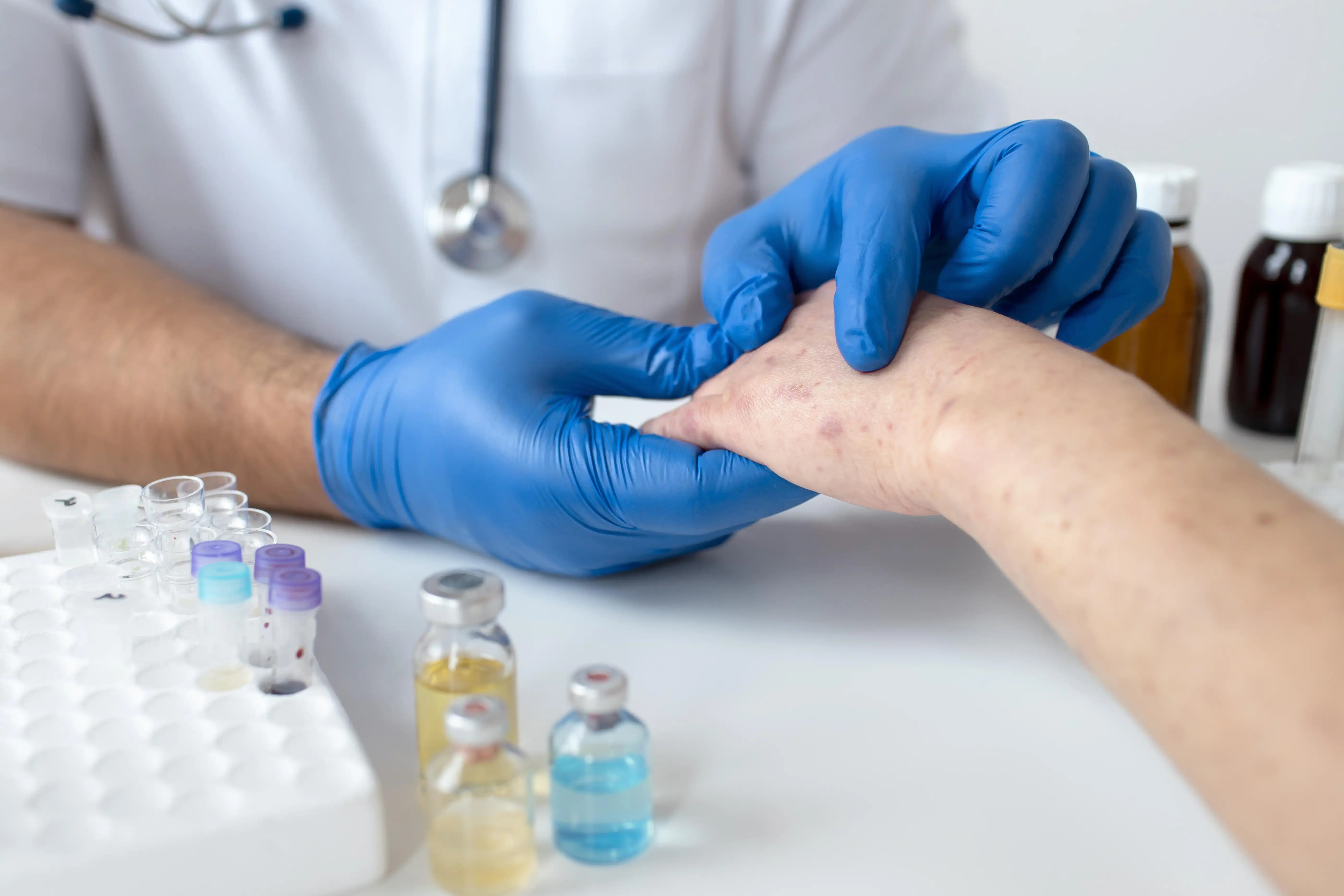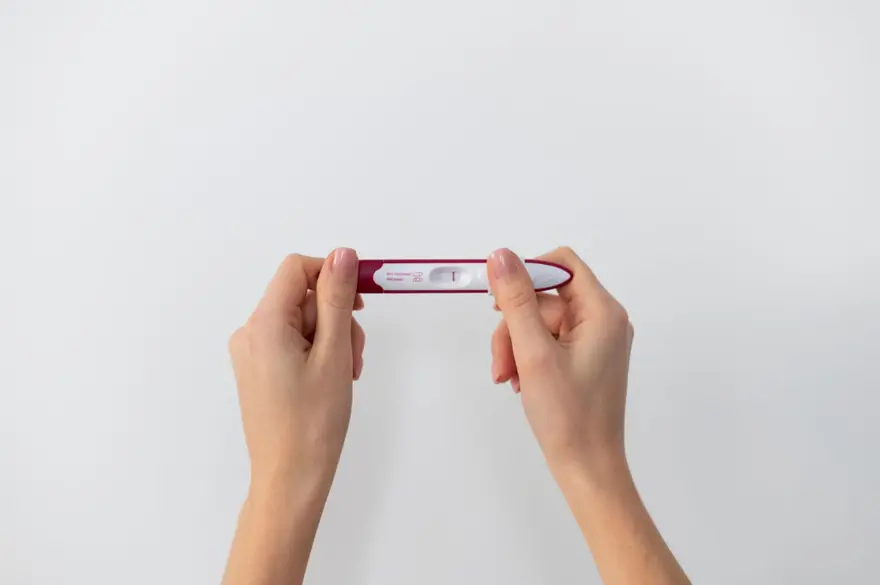Preventive Healthcare
Comprehensive Guide to Chickenpox: Symptoms, Causes, and Diagnosis for All Ages
5907 Views
0

What is chickenpox?
Caused by the varicella-zoster virus (VZV), chickenpox causes an itchy, blister-like rash, among other symptoms, and can be highly contagious. The chickenpox rash usually first appears on the chest, back, or face and slowly spreads to the rest of the body. Over time, the blisters pop and start to leak before they crust, scab and finally heal. Chickenpox in adults can be serious, especially during pregnancy and in people with weakened immune systems.
Chickenpox is common among children, but you can get it at any age. It usually gets better by itself after 1 to 2 weeks. However, you should visit a doctor. Generally, people suffer from chickenpox during the early age, or if they haven't taken the chickenpox vaccine. However, it is recommended to take early measures and prevent chickenpox altogether by taking the vaccine.
How does chickenpox spread?
You can get chickenpox at any age. You or your child, who hasn't contracted chickenpox yet, may appear fine for one to three weeks after exposure to the virus. Chickenpox remains contagious and can spread a day before the chickenpox rash appears and even after five days of appearing.
The virus spreads through:
- Contact with another individual with chickenpox.
- Contact with the fluids excreted from the eyes, nose, or mouth of an infected individual.
- Breathing the same air where an infected individual is coughing or sneezing.
What is the difference between smallpox and chickenpox?
While chickenpox and smallpox are diseases that cause rash on the skin, different viruses are responsible for them. Smallpox is a more serious disease as it can cause severe illness and, sometimes even death.
The rashes may develop at different times and have a distinct appearance. The pustules of smallpox all look the same, while those of chickenpox may come in waves, with the individual spots different. Some of these spots may start to scab even though others are still filtering.
However, the main difference is that smallpox is eradicated thanks to a global vaccination program.
What are the signs and symptoms of chickenpox?
Chickenpox symptoms are very easily recognizable. Your healthcare provider will be able to identify the disease by looking at the skin of the infected individual. Most often, the chickenpox symptoms appear as follows:
- Fever
- Loss of appetite
- Tired feeling
- Headaches
- Persistent stomachache for 1 or 2 days
- Very itchy skin rash that appears like small blisters
- Blisters filled with milky water-like liquid
- Scabs over broken blisters
- Blotchy skin
- Fading of the spots
How is chickenpox diagnosed?
Your doctor can diagnose chickenpox by conducting a physical examination of the spots on the skin. In some cases, lab tests will be conducted to verify the cause of the blisters.
How can I help my child with chickenpox?
A child with chickenpox needs a lot of rest. Ensure they have a lot of fluids and try to help them feel less itchy by encouraging chickenpox self-care. Here are a few simple ways in which you can help a child with chickenpox:
- Keep your child cool
- Press a cool, moist rag on the rash
- Ensure your child does not scratch the rash. Clip their nails short so they avoid breaking the blisters.
- Apply an antihistamine lotion on the rash. These are readily available at chemists and drugstores.
- Over-the-counter chickenpox medication can be given to the child after consulting your doctor.
- A cold shower or an oatmeal bath can help soothe the skin and reduce itchiness.
What if my baby gets chickenpox?
Chickenpox is more dangerous to newborns as compared to healthy children or adults. This is why it is essential to contact your healthcare provider immediately if a baby up to 3 months contract the disease.
What complications are possible with chickenpox?
Complications with chickenpox are rare but possible. These include:
- Bacterial infections in the skin, blood, and soft tissue
- Pneumonia
- Dehydration
- Encephalitis
- Issues with blood clotting or healing
- Liver problems
Who is more likely to have complications from chickenpox?
Most healthy people will not have chickenpox complications. However, severe cases of chickenpox can be dangerous to very young babies, pregnant women, teenagers, transplant patients, and others with immunity issues.
Can chickenpox be fatal?
Dying from chickenpox is very unlikely as most people respond to chickenpox treatment well. However, a few people have died because of the disease, and the number keeps reducing every year.
Can my child get a shot to prevent chickenpox?
Most paediatricians recommend the chickenpox vaccine that helps prevent this disease.
What should I know about the chickenpox vaccine?
The chickenpox vaccine is usually divided into two doses: one that is given at the age of 12 to 15 months and the second when the child is between four and six years old. If you are 13 or older and have not gotten the vaccine, taking both doses at least 28 days apart is recommended.
This vaccination has over 90% effectiveness in preventing chickenpox.
Who shouldn't get the chickenpox vaccine?
While the vaccine can keep you safe from the disease there are a few people who should avoid taking the chickenpox vaccine. This includes those who:
- Are allergic to a part or the whole vaccine
- May be pregnant
- Have immune system issues
- Suffer from tuberculosis
- Are not feeling well (you can get it once you're feeling better)
- Have recently had a blood transfusion
- Have taken another live vaccine
Talking to your healthcare provider can help you understand if the chickenpox vaccine is for you.
Can adults get chickenpox?
When you get chickenpox for the first time your body fights the disease by making a substance known as antibodies. The antibodies help the body get better while fighting the virus. These antibodies stay with you for the rest of your life immediately fighting the germs when they come in contact with it next. This is why an adult who has previously contracted chickenpox may not get it again.
What are shingles?
In some cases, the chickenpox virus (Varicella zoster) can reactivate and cause a disease known as shingles. Those who contract shingles usually spread chickenpox to those who haven't had chickenpox yet. Shingles usually appear in older individuals who have weakened immune systems.
You cannot get shingles unless you have had chickenpox. The virus that causes shingles is known as herpes zoster. This does not have any connection to genital herpes and usually looks similar to the rash caused by chickenpox that forms a band around a specific location of the body. Shingles is a painful disease that usually takes a week or two to heal.
What are the three stages of chickenpox?
The stages of chickenpox are differentiated based on how the rash looks:
Stage 1: Red and bumpy rash
Stage 2: Fluid-filled blistered rash
Stage 3: The blisters rupture and scab over
Where does chickenpox usually start?
Initially, you will start getting chickenpox around your face, chest and back. From here it can start spreading to the rest of your body.
Can I get chickenpox twice?
While certainly possible, getting chickenpox twice is rare.
How many days does it take to recover from chickenpox?
You usually do not need chickenpox treatment to recover. You will start feeling better after 10 to 14 days.
Conclusion
Those who have taken the chickenpox vaccine or who have already contracted the disease are most likely immune and should not worry about contracting the disease. You can talk to your doctor about taking the vaccine if you haven't had chickenpox. If you notice early signs of chickenpox visit your doctor immediately for a diagnosis. Carry out regular full-body checkups and diagnostic tests like the ones available at Metropolis Labs. Visit the website to find out more about the services and tests provided here.























 WhatsApp
WhatsApp
